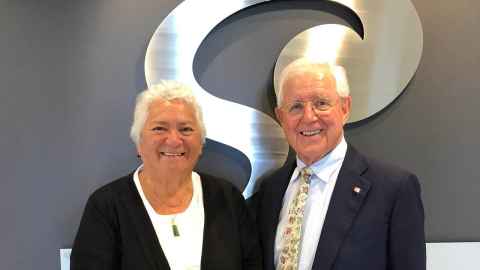Revolutionary iwi partnership aims to elevate dementia care
26 February 2024
Waipapa Taumata Rau, University of Auckland partners with Ngāpuhi to develop support strategies for carers of kaumātua with mate wareware.

With the aim to reshape mate wareware or dementia care within Māori communities, a transformative partnership between Te Hau Ora o Ngāpuhi and the University of Auckland's Centre for Brain Research (CBR), is set to launch in Northland, Aotearoa.
The groundbreaking initiative will weave in tikanga Māori to address the pressing need for culturally appropriate dementia care while navigating the sacred essence of the head, a cornerstone of Māori belief. Recognising the tapu nature of the head, partnership with Māori is imperative to explore avenues for enhancing mate wareware care for Māori kaumātua and their whānau.
On Tuesday 27 February, CBR and Te Hau Ora o Ngāpuhi will hold an official launch at Roma Marae in Ahipara, with key attendees including CBR directors Distinguished Professor Sir Richard Faull (Ngāti Rahiri, Te Ātiawa), and Dr Makarena Dudley (Te Rarawa), and Te Hau Ora o Ngāpuhi Chief Executive Tia Ashby.
Māori are overrepresented in dementia statistics and our research shows that by 2026, up to 4,500 Māori in Aotearoa will live with mate wareware. Māori have worse odds for developing mate wareware than non-Māori.
Around 83,000 New Zealanders live with mate wareware and this is expected to rise to 170,000 by 2050, says long-time mate wareware researcher, Dr Dudley.
"Māori are overrepresented in dementia statistics and our research shows that by 2026, up to 4,500 Māori in Aotearoa will live with mate wareware. Māori have worse odds for developing mate wareware than non-Māori.
“There is an urgent need to support Māori communities to respond to rising rates of kaumātua diagnosed with mate wareware. We know the burden on our kaitiaki caregivers can be significant and often they need support to take care of themselves before they can take care of their people."
She says this partnership is a transformational approach to community-based care for mate wareware.
"It acknowledges Mātauranga Māori and draws on knowledge from both world views to create pathways around brain health that work and are effective.
“The support groups will be a space for kaitiaki to offload, share and learn. We will connect them with guest speakers who might be neuroscientists or who have experience working with dementia patients, to create a community of knowledge.
"Our collaboration with iwi, particularly Ngāpuhi, signifies a pivotal step toward bridging cultural understanding and scientific advancement in this critical area."
At the heart of this initiative is a commitment to crafting a Māori-centred strategy to support carers, whānau, and kaumātua living with mate wareware.
The partnership will see Te Hau Ora o Ngāpuhi dementia team, in collaboration with professionals from the University's School of Psychology, spearheading a comprehensive six-month programme.
It will also be championed by researcher Zahra Cherrington-Irving (Ngāpuhi), who will integrate cutting-edge research with Māori perspectives, aiming to develop a culturally resonant model for kaiāwhina of whānau navigating mate wareware across Aotearoa.
The launch event for the CBR Ngāpuhi Hauora o te Roro Rangahau partnership will commence with a traditional pōwhiri at noon, symbolising a harmonious merging of Indigenous wisdom and scientific inquiry in the pursuit of enhanced dementia care for Māori communities.
“The statistics for mate wareware are not great. We are over represented, and we must make that better. It is our hope that this model can be rolled out to other iwi, so the benefits will extend across the motu," Dr Dudley says.
Details:
When: Tuesday 27 February
Where: Roma Marae, Ahipara
Time: 12pm
Media are welcome to attend, please RSVP via te.rina.triponel@auckland.ac.nz
Media Contact
Te Rina Triponel | Kaitohutohu Pāpāho Māori
M: 021 029 90650
E: te.rina.triponel@auckland.ac.nz